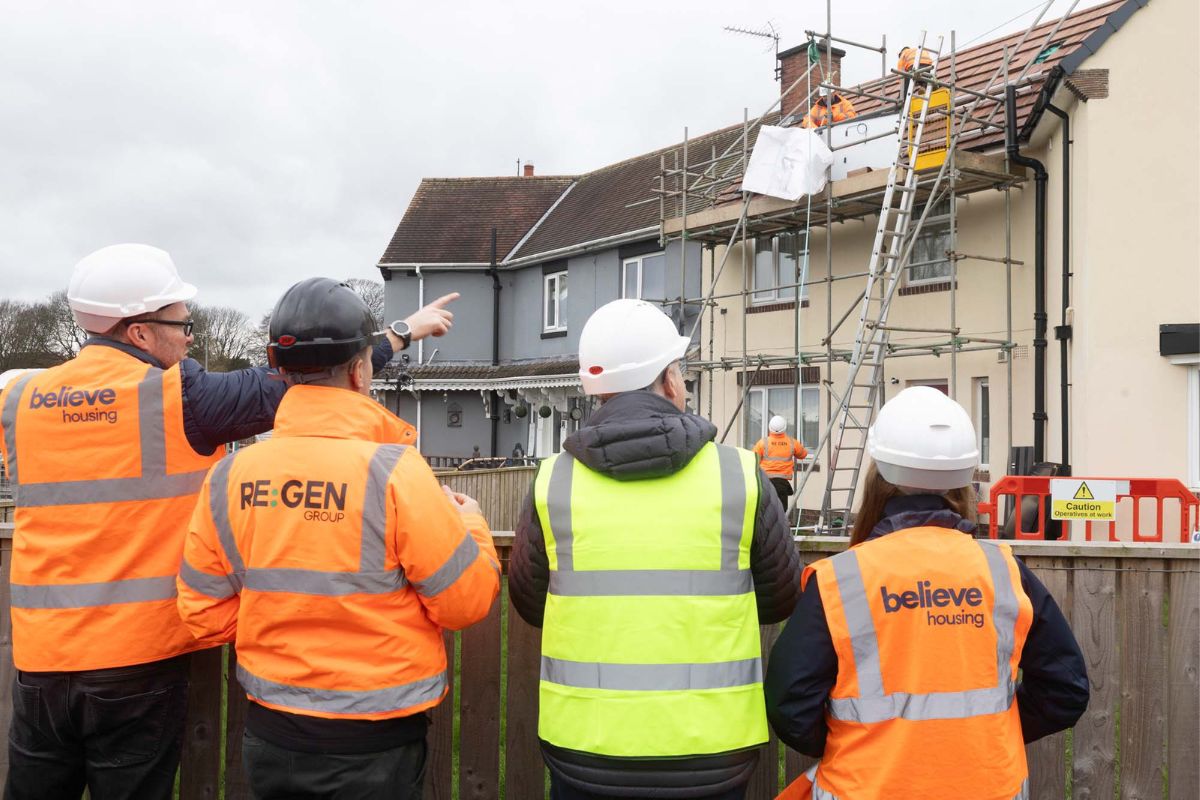Second National Infrastructure Assessment sets out pressing need to modernise infrastructure to support economic growth and climate action
Improved infrastructure to boost economic growth across the UK and meet climate goals is both achievable and affordable if the right policy steps are taken now, according to a new report from the government’s independent advisers on infrastructure strategy.

The Second National Infrastructure Assessment – a five yearly review conducted by the National Infrastructure Commission – sets out a programme of transformation for the country’s energy, transport and other key networks over the next 30 years. Its recommendations include:
- backing electrification as the only viable option for decarbonising buildings at scale, to reduce reliance on volatile fossil fuels, lower energy bills over the long term and to meet the UK’s climate targets, with government fully subsidising the costs of installing a heat pump for one third of households – based on income – and offering £7,000 support to all others to switch to a heat pump or heat network
- adding low carbon, flexible technologies to the electricity system to ensure a highly renewable energy system remains reliable, and creating a new strategic energy reserve to boost Great Britain’s economic security
- major public transport upgrades in England’s most congested cities to unlock economic growth, and an urgent and comprehensive review of rail priorities for the North and the Midlands following government’s recent decision on High Speed 2
- better maintenance of existing roads and targeted enhancements to speed up journeys on underperforming parts of the national road network
- building additional water supply infrastructure and reducing leakage, while introducing compulsory water metering as part of efforts to reduce water demand urgently implementing reforms to meet a 65 per cent recycling target by 2035 and phasing out energy from waste plants that do not include carbon capture facilities.
The report is clear about the need for significant public and private investment in infrastructure if the UK is to rebalance its economic geography, meet climate obligations, improve resilience and enhance the natural environment.
The Commission calculates that government’s commitment to a sharp increase in public sector investment in infrastructure to around £30 billion per year will need to be sustained until 2040. This sits at the top of the funding envelope set by HM Treasury for the Commission’s recommendations of up to 1.3% GDP a year. Meanwhile, private sector investment will need to increase from around £30-40 billion over the last decade to £40-50 billion in the 2030s and 2040s.
Attracting this investment to the UK in the face of global competition will require a new approach, says the Commission:
- policy stability: setting out a clear plan and sticking to it, to lend certainty to investors and help build up supply chains
- pro-investment regulation: clear guidance from government on priorities, investment ahead of need and business models to support emerging technologies
- speeding up the planning system for major projects, particularly energy transmission schemes: with regularly updated National Policy Statements from government, strategic spatial planning, more effective sharing of environmental data and clearer community benefits in return for hosting key infrastructure.
The report draws on two years of analysis, expert engagement and public research, resulting in what Commission chair Sir John Armitt labels “probably the most comprehensive assessment yet of the infrastructure costs associated with supporting regional growth and reaching net zero”.
Energy and net zero
Alongside other recommendations, the Assessment makes the case for heat pumps and heat networks as the solution for switching buildings from gas for heating. Noting that seven million buildings in England will need to make this transition by 2035 to meet the Sixth Carbon Budget, the Commission sets out a bold, comprehensive and fully costed programme of government support for households to make the switch, including:
- Around £1.3bn per year to 2035 to cover the full cost of heat pump installations for lower income households, with additional support for energy efficiency improvements and devolution to local authorities to manage local energy efficiency programmes
- Around £1.9bn per year to 2035 for an initial upfront subsidy of £7,000 to households installing a heat pump or connecting to heat networks, tapered over time as costs fall, in addition to zero per cent financing for the remaining cost
- Around £3.2bn per year to 2035 to improve energy efficiency and install heat pumps across the public sector estate and social housing.
In addition, it calls on government to rule out the use of hydrogen for heating and focus hydrogen on power generation and industrial decarbonisation.
New networks will need to be up and running by 2035 for the storage and transmission of hydrogen and carbon, to serve these needs and ensure heavy industry has the means to decarbonise and remain competitive in global markets. The Assessment sets out proposals for encouraging the private sector to build these networks, and an indicative map of core initial pipelines connecting key industrial hubs across Britain.
The Assessment also proposes significant additional electricity storage capacity and demand side response – tools to reduce or reschedule energy usage at times of peak demand – to increase the short term flexibility of the power grid. The Commission calculates 60GW of this capacity will be needed by 2035 (up from around 15GW today).
To ensure resilience during extended calm or cloudy periods, the Commission also calls for effective business models to incentivise private investment in power plants driven by hydrogen, or gas with carbon capture and storage. The Commission suggests 30TWh of long term flexibility provided by such plants will be needed by 2035 – about six per cent of projected total electricity demand in that year.
Environment and climate resilience
Noting that most assets that will be operating in 2055 have already been built, the Assessment calls for government to set outcome-based service standards for infrastructure. Operators should be required to set out the costs of meeting these standards while adapting their networks to climate and other risks, to inform future regulatory and funding settlements.
The Commission restates its calls for increased investment in infrastructure to reduce the risk of coastal, river and surface water flooding, and to reduce the at least 4,000 mega litres per day water supply gap by 2050 by tackling leaks, reducing demand and building new storage and transfer networks.
Action in these areas will also help improve water quality, which the Commission recognises is a major concern to the public. The Assessment notes the importance of utilising nature based solutions to address sewer overflows, alongside more active management of underground networks to better regulate flows into treatment works.
Measures to boost recycling rates should be implemented without delay, says the Commission, assisted by setting tailored targets for each local authority in England and expanding the ban on hard-to-recycle plastics. To reduce emissions from the waste sector and encourage more investment in recycling capacity, the Assessment recommends that no new energy from waste plants should be built without carbon and capture storage facilities.
Among a range of cross-cutting recommendations, the Commission also recommends that public spending frameworks for infrastructure are reformed to encourage more effective project management. The Assessment calls for fixed multi-year budgets for major projects, where money can be moved between years to avoid the illusion that delay saves money; and for the largest projects to have their own ‘project expenditure limit’ to protect smaller projects that sit within the same government department.
Writing in the report’s foreword, Sir John Armitt, chair of the National Infrastructure Commission, said:
“The good news is that modern, reliable infrastructure can support economic growth, help tackle climate change and enhance the natural environment.
“We stand at a pivotal moment in time, with the opportunity to make a major difference to this country’s future. But we need to get on with it.
“People often talk about infrastructure as the backbone of our economy: what our infrastructure needs now is the collective mettle to turn commitments into action that will reap rewards for decades to come.”
At Unlock Net Zero Live on the 22nd & 23rd November we will be running a couple of sessions on our main stage exploring the wider structural challenges of net zero. Join us for "Time is running out: how are we going to deliver net zero in the UK" and "A systems solution to a systems challenge" to hear from speakers from LETI, OnePlanet, Oxford Net Zero Initiative, Forum for the Future, CIH Futures, West Midlands Combined Authority, Green Alliance, UK Green Building Council and the Climate Change Committee.
Secure your place by using this link



